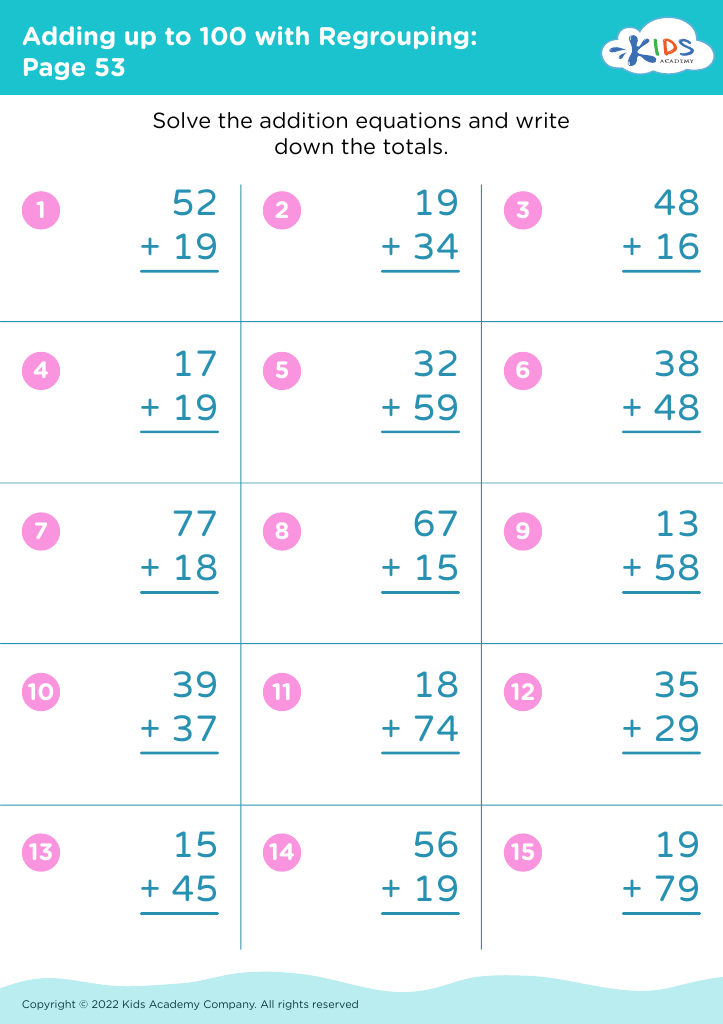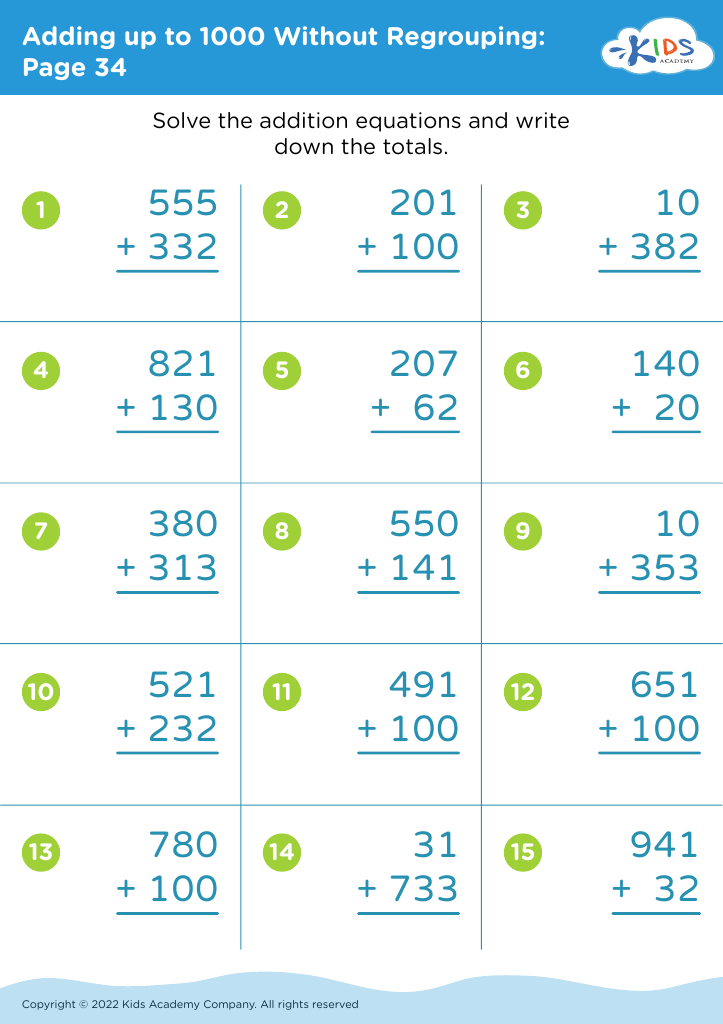Improve problem-solving Addition & Subtraction Worksheets for Ages 7-9
4 filtered results
-
From - To
Unlock your child’s potential in math with our Improve Problem-Solving Addition & Subtraction Worksheets designed for ages 7-9. These engaging, printable worksheets focus on enhancing critical thinking and problem-solving skills through fun, interactive activities. Each worksheet is tailored to challenge young learners, encouraging them to explore various strategies and deepen their understanding of addition and subtraction. By integrating real-world scenarios, children will not only master basic math concepts but also develop valuable analytical skills. Perfect for classroom use or homework reinforcement, our worksheets make math fun and accessible. Discover a world of learning that fosters confidence and curiosity in math!
Improving problem-solving in addition and subtraction for children aged 7-9 is crucial for their overall mathematical development and academic success. At this stage, children are transitioning from learning basic arithmetic facts to applying these skills in more complex problems. A strong foundation in addition and subtraction empowers them to tackle not only math but also real-world challenges requiring logical reasoning and critical thinking.
Parents and teachers play a vital role in fostering this skill set, as engaged adults can provide encouragement and expose children to various problem-solving strategies. When children learn to approach math problems systematically, they develop resilience and persistence, essential traits for lifelong learning. Moreover, the ability to solve problems confidently nurtures a positive attitude toward mathematics and promotes self-esteem, reducing math anxiety.
Engaging in problem-solving activities enhances cognitive development, allowing children to make connections between concepts. In an era where standardized testing is commonplace, improving mathematical fluency ensures children perform well academically. Ultimately, when parents and teachers prioritize problem-solving skills, they lay the groundwork for a generation of thoughtful, resourceful individuals equipped to navigate future challenges both in academia and beyond.























